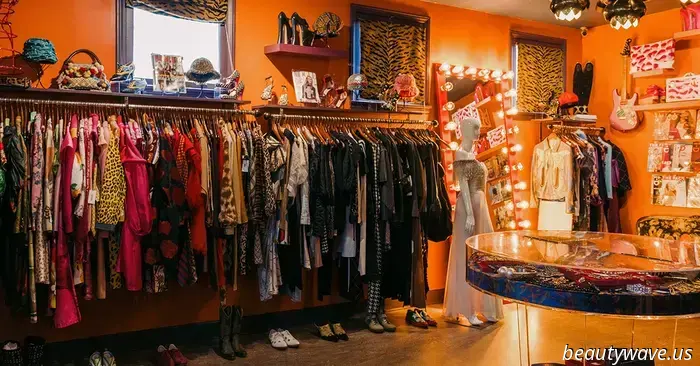
The demand for bottled drinking water has increased in Russia.
One in ten Russians follows the principle of "cheap and cheerful."
More and more Russians are choosing water dispensed from vending machines on the streets for daily drinking and cooking. Recent statistical data shows that consumption of such water is growing. By 2025, 10.4% of consumers are expected to buy water from vending machines—an increase of 3% compared to 2023.
“Buying water in reusable containers is the only water consumption practice showing consistent growth. People prefer vending machines because they are cheaper than bottled water. The quality is on par with, or sometimes better than, store-bought water,” says Sergey Ryazantsev, entrepreneur and director of the Association of Bottled Drinking Water Producers (ABBWD).
There are two types of water vending machines: the first dispense artesian water sourced from certified springs transported in tankers, the second significantly purify tap water.
“Sometimes people think that a household water filter is no worse than a professional purifying machine. That’s a huge mistake,” says Alexander Noda, board member of ABBWD and owner of the Perm factory ‘Third Tap’. “Firstly, few people follow a regular schedule for cleaning or replacing cartridges. Harmful bacteria multiply in home units’ reservoirs, whereas vending machines have regulated production control—regular servicing, ultraviolet and ozone disinfection of tanks. Secondly, a home reverse osmosis filter’s membrane often wastes over half of the purified water by simply draining it into the sewer. The economic benefit is questionable: the average cost of a full filtration system at home is such that you could buy purified vending machine water for a family of three for more than a year, and replacing filters also adds to expenses.”
Moreover, there are regions where water pipes are very old, literally clogged with rust or silt. In such cases, no household filter can handle the situation; industrial treatment facilities are needed. The key is that the vending machine owner operates honestly, regularly changing filters, cleaning storage tanks, and not skimping on lab testing. Customers can easily identify a reputable bottled water seller: the company (or sole proprietor) openly displays information about itself, posts water analysis reports or provides a link to an online resource where they are available. It's important to check the condition of the vending machine and surrounding area: if it looks tidy, with no rust, graffiti, or trash, it indicates a responsible seller.
Finally, another argument in favor of vending water: it turns out that the mineralization requirements are stricter than for bottled water or even tap water!
“The mineralization standards for drinking water from vending machines, as approved in the methodological guidelines of Rospotrebnadzor, set the limit at 150 mg/l, compared to the generally accepted lower limit of 50 mg/l. By the way, my colleagues and I actively participated in developing these guidelines, conducting 26,100 sanitary-chemical and microbiological studies of drinking water at the Federal Hygiene Research Center named after F. F. Erisman,” concludes Sergey Ryazantsev.
*Based on the results of the “OmnibusLife” project. The water consumption practices research block was commissioned by the Association of Bottled Drinking Water Producers.

Other articles
 The Vintage Store in Los Angeles That Every Celebrity and Fashion Editor Visits
Aralda Vintage is truly a paradise for fashion enthusiasts.
The Vintage Store in Los Angeles That Every Celebrity and Fashion Editor Visits
Aralda Vintage is truly a paradise for fashion enthusiasts.
 To achieve a stylish fashion-forward look, pair this shoe trend with cropped pants.
If your aim this summer is to look sophisticated, take inspiration from Selena Gomez and pair this stylish sandal trend with your cropped trousers.
To achieve a stylish fashion-forward look, pair this shoe trend with cropped pants.
If your aim this summer is to look sophisticated, take inspiration from Selena Gomez and pair this stylish sandal trend with your cropped trousers.
 Hands Asian will host a gastro dinner with Japanese chef Kazuhiko Kizima in honor of the restaurant's birthday.
On July 31st at Hands Asian — a special evening. The restaurant is turning 4 years old, and this milestone will be celebrated not just with a dinner, but with a true culinary journey. Hands Asian and Hands neo-bistro head chef Nikolay Petrukhin, along with guest Japanese chef Kazuhiko Kizima — a master of fermented cuisine — have prepared seven unique courses, each a small revelation. The evening will begin…
Hands Asian will host a gastro dinner with Japanese chef Kazuhiko Kizima in honor of the restaurant's birthday.
On July 31st at Hands Asian — a special evening. The restaurant is turning 4 years old, and this milestone will be celebrated not just with a dinner, but with a true culinary journey. Hands Asian and Hands neo-bistro head chef Nikolay Petrukhin, along with guest Japanese chef Kazuhiko Kizima — a master of fermented cuisine — have prepared seven unique courses, each a small revelation. The evening will begin…
 Keep this between us: I just discovered a $165 alternative to The Row's trendy heels that are sold out and priced at $1300.
No problem at all.
Keep this between us: I just discovered a $165 alternative to The Row's trendy heels that are sold out and priced at $1300.
No problem at all.
 Hailey Bieber and Kourtney Kardashian Have Just Endorsed This Summer's Hottest Nail Trend.
Hailey Bieber and Kourtney Kardashian are two celebrities who have adopted the "limoncello" nail trend this summer. Click here for inspiration.
Hailey Bieber and Kourtney Kardashian Have Just Endorsed This Summer's Hottest Nail Trend.
Hailey Bieber and Kourtney Kardashian are two celebrities who have adopted the "limoncello" nail trend this summer. Click here for inspiration.
 A new sound from Tatarstan: artist DINARA releases the single "Ocean of Love" — a musical confession of feelings that can't be hidden.
A new sound from Tatarstan, the voice of a woman who can feel and live through every emotion. DINARA, a young artist, has released her debut track from her new album. "Ocean of Love" is a soundtrack for summer, capturing the thrill of first love, genuine intimacy that cannot be faked, and feelings you'd want to hold onto for as long as possible. At its core is a story…
A new sound from Tatarstan: artist DINARA releases the single "Ocean of Love" — a musical confession of feelings that can't be hidden.
A new sound from Tatarstan, the voice of a woman who can feel and live through every emotion. DINARA, a young artist, has released her debut track from her new album. "Ocean of Love" is a soundtrack for summer, capturing the thrill of first love, genuine intimacy that cannot be faked, and feelings you'd want to hold onto for as long as possible. At its core is a story…
The demand for bottled drinking water has increased in Russia.
Every tenth Russian is guided by the principle of "cheap and cheerful." Increasingly, Russians are choosing water dispensed through street vending machines for daily drinking and cooking. Fresh statistical data shows that consumption of such water is growing. By 2025, 10.4% of consumers will purchase water from vending machines — a 3% increase compared to 2023*. – Buying water in their own containers…
